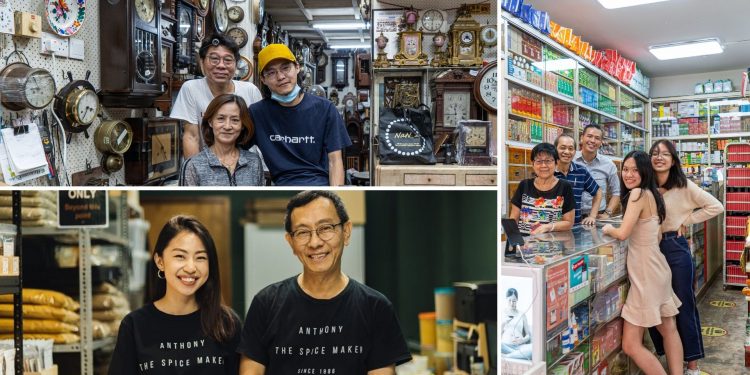It can be difficult to discern where work ends and family time begins for the Lim family at Cheong Ann Watch Maker. After all, 60-year-old David Lim, his 58-year-old wife Sally Neo, and their 29-year-old son Shawn can be seen often hunched over, meddling with clockwork mechanisms at their workstations in the corner of their quaint shophouse along Lim Tua Tow Road in Upper Serangoon.
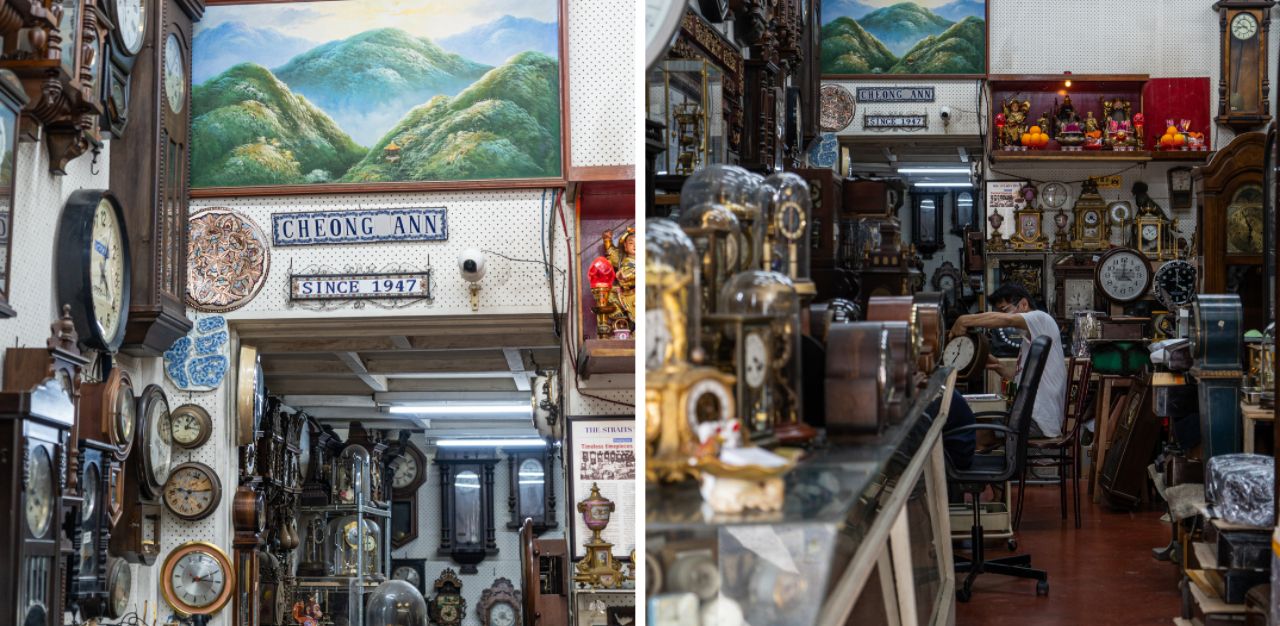
“The shop was founded by my grandfather in 1947,” the younger Mr Lim says, motioning to the two porcelain plaques hanging on the wall. They have the shop’s name and the year it was founded inscribed on them. “He used to be a coffee boy, but somehow picked up the trade from a clockmaker in the vicinity where he worked,” he adds.
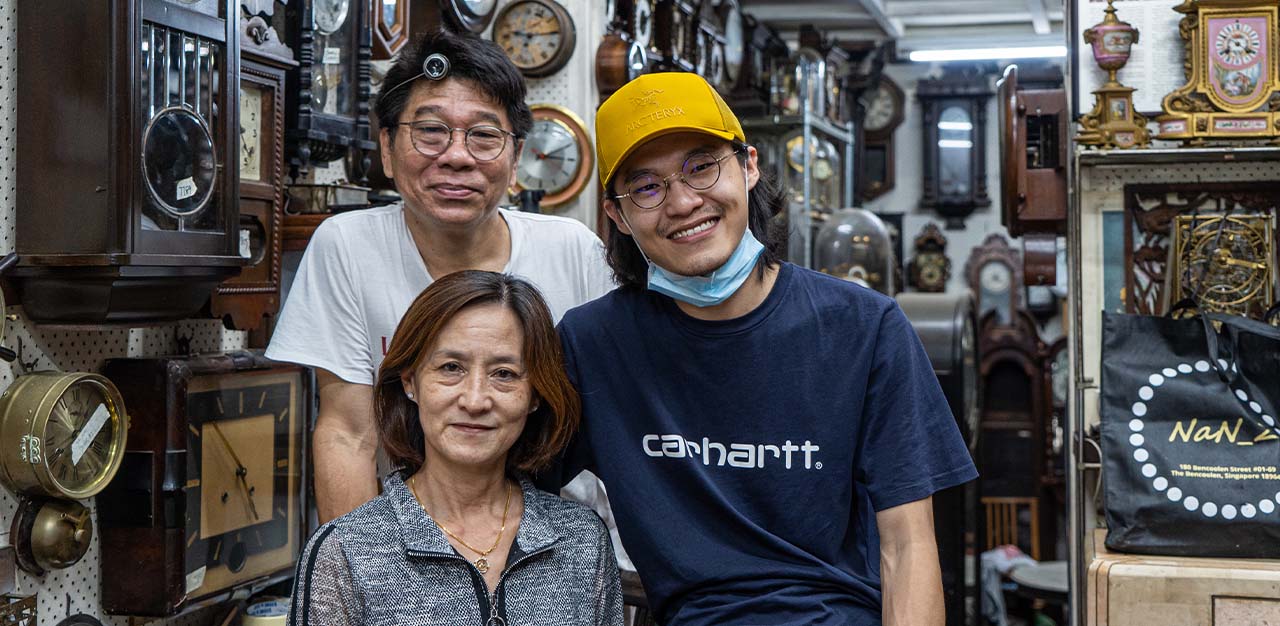
Having spent the bulk of his childhood playing around the shop with his older sister and brother, and observing the trade from up-close, the younger Mr Lim’s decision to join the family business in 2015 straight after completing National Service was “a no-brainer”. For the third-generation scion, being confined to his workstation and surrounded by grandfather clocks and antique timepieces kept him grounded, focused and taught him how to appreciate his own possessions.
Mr Lim, his father, remembers having the boy within sight to keep him out of trouble when he was younger. Recalling his son’s mischievous nature, Mr Lim says: “When I taught him (the trade), I had to be stern and harsh. I had to push him. And probably since he’s from the generation who knows how to use the Internet, he picked up the trade quickly.”
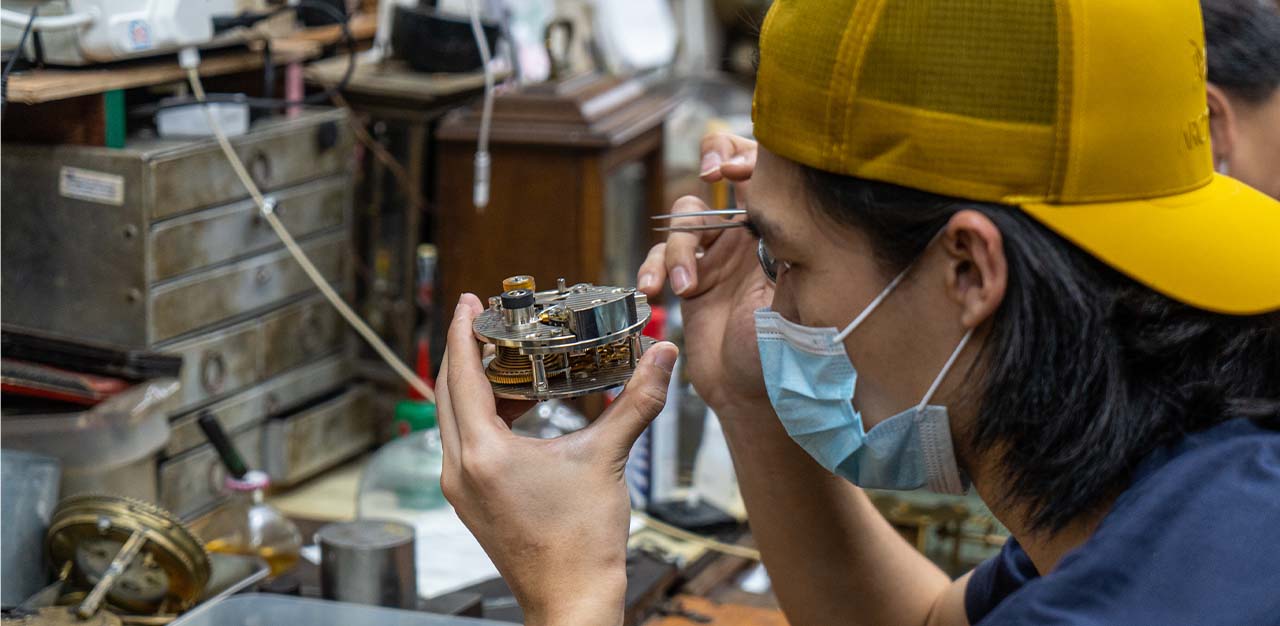
On what he adores most about his profession, the younger Mr Lim finds it fulfilling whenever he successfully repairs a client’s timepiece. But the most satisfying for him is being able to work his magic on a faulty collectible and fix it. “That feeling that you get when you are able to repair a watch that no other watchmaker can is great,” he says.
Cheong Ann Watch Maker is one of many neighbourhood or heartland shops in Singapore that is still owned and managed solely by members of a family. With roots that go all the way back to the late 1980s or early 1990s, each of these shops often specialises in a unique trade or service and has seen generations of patrons come and go.
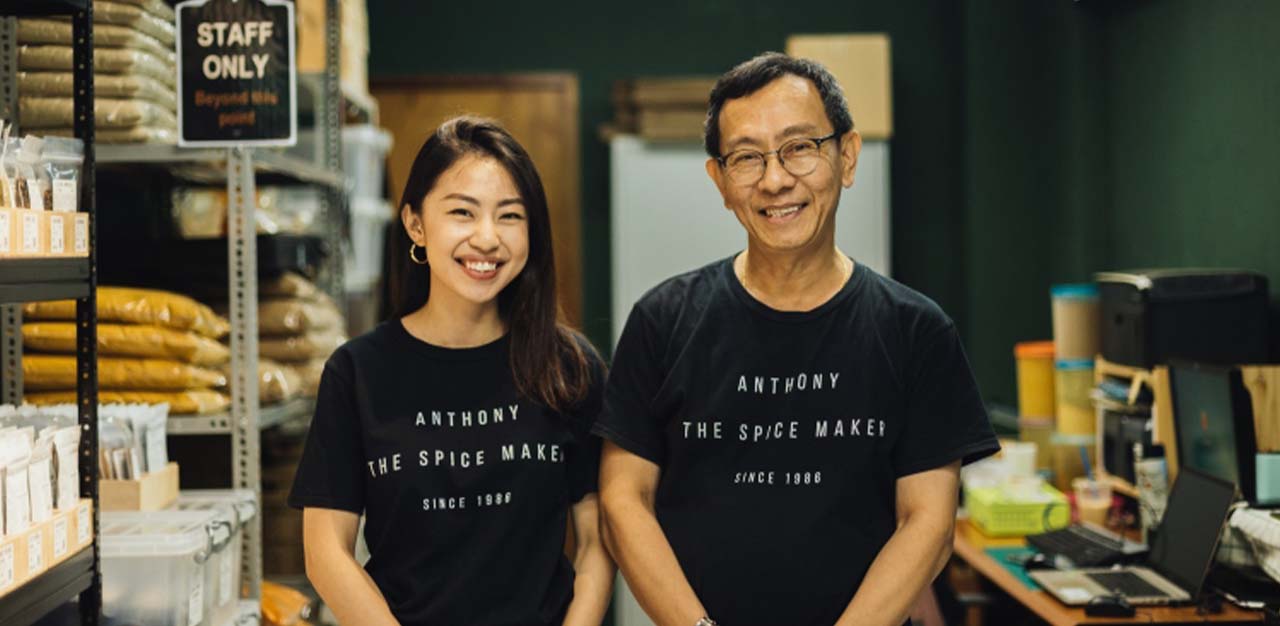
A similar narrative is told at Singapore’s pioneer speciality spice blend store Anthony The Spice Maker at Kreta Ayer Road. Established in 1986 and previously under the moniker ‘Liao Jia Xiang Trading’, Anthony The Spice Maker was founded by Anthony Leow, a second-generation spice merchant, and presently managed by both he and his daughter Min Ling.
According to Mr Leow, the shop was born during a time when residents were evicted from their dilapidated kampungs (Malay for villages). Among those who moved were his parents, who were spice merchants and Mr Leow grew up following his father’s footsteps, learning the tricks of the trade along the way. But he harboured bigger ambitions then.
From interacting with housewives and grannies, who had approached the duo for customised spice mixes, Mr Leow learned the different recipes and their corresponding special blends. Being entrepreneurial and shrewd, he tapped on the family kept secrets of these women, and along with his own knowledge of spices, created unique blends for popular recipes, and marketed them at local supermarkets.
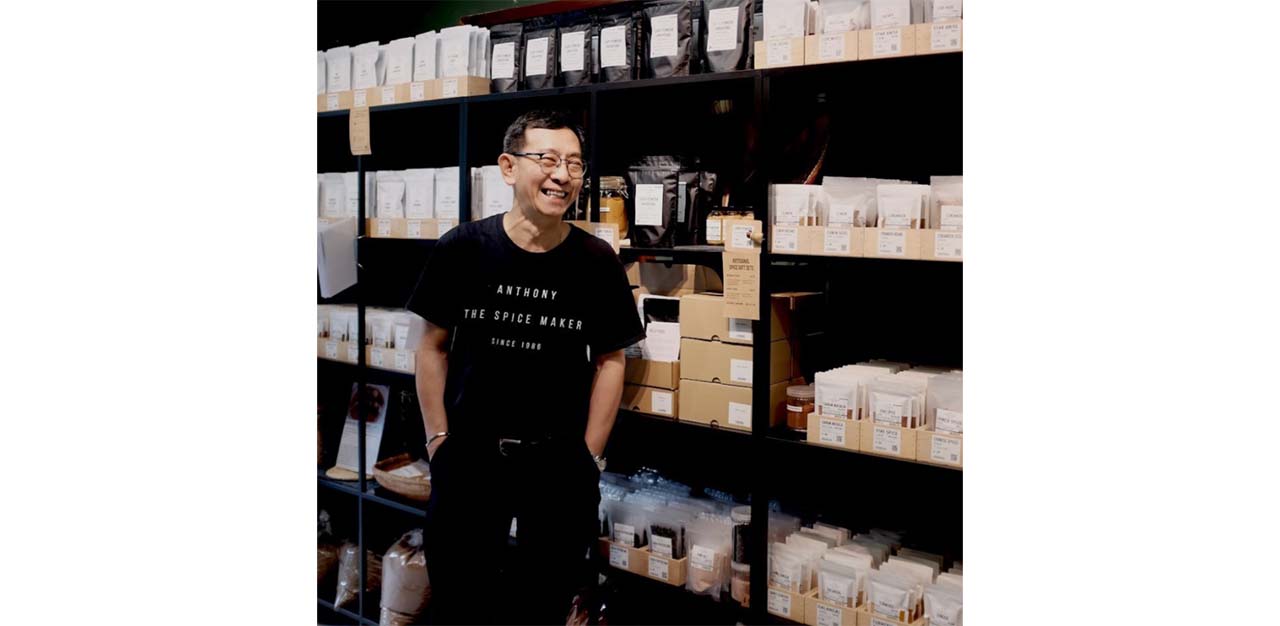
Like the younger Lim, Ms Leow, 28, spent a huge part of her childhood tagging along with her father as he walked the supermarket aisles and visited factories. Like her own father, she picked up the bits and pieces of the spice trade from such exposure and constant interactions with housewives. Recalling her earlier years talking to customers at her father’s shop, she says: “Because I was fairly young, they would sometimes doubt me. I have never been afraid and I knew I needed to prove myself eventually. It took some time but I eventually convinced them that I know my spices.”
Ms Leow says when she was a child and into her teenage years, she had never thought of working for her father in the trade. It was not until after she graduated from university that her father broached the subject with her. “That got me thinking. I could be helping my father and still be doing what I love. More importantly, I didn’t want my father to be running the business alone,” says Ms Leow, who now handles communication, personal relations and marketing at the store.
The diversifying neighbourhoods where these shops reside rarely gives their owners a pause. Often, families managing them have to grapple with arbitrary changes on the go. These include rental hikes, en bloc sales, or even seemingly insurmountable challenges when bigger players dominated the market in the vicinity.
While there have been several who succumbed to the ebb and flow of business and economics, there are many more who continue to display resilience, passing their legacies on to the next generation.
This has never been truer for 51-year-old Mr Lee Chin Siong, the third-generation practitioner at Heng Foh Tong Medical Hall, and his family.
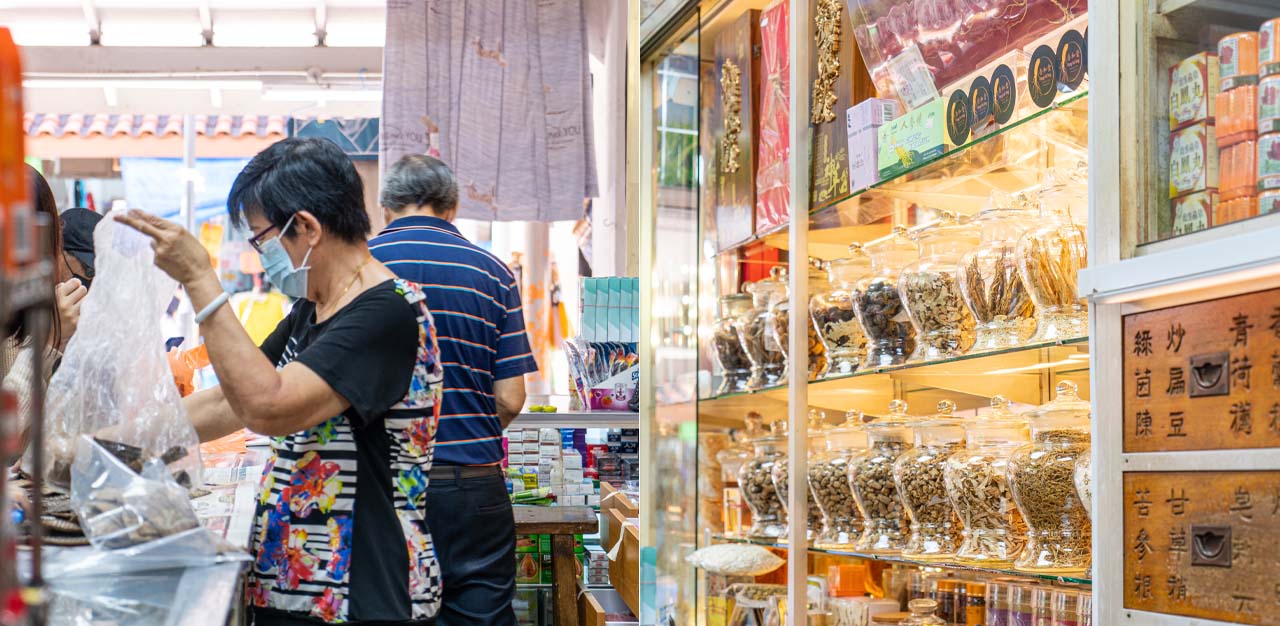
In past decades, the Traditional Chinese Medicine (TCM) scene in Singapore has been dominated by large industry players, such as Eu Yan Sang, Hockhua Tonic and ZTP. They are in many major departmental malls and HDB neighbourhoods, taking over from the smaller Chinese medicinal halls that used to be in every corner of the community.
Determined to carry on the legacy that was established by his grandmother Ng Sock Eng and making TCM relevant today, Mr Lee, a retired engineer, came out of semi-retirement to rebrand the family business.
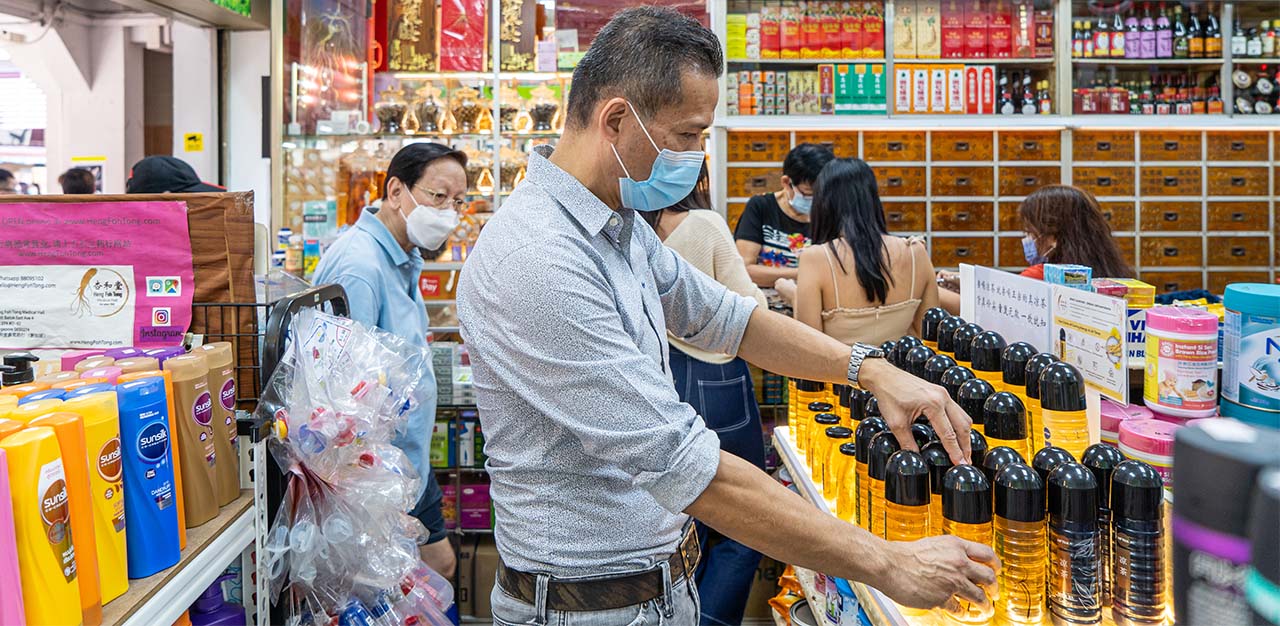
“Herbs are gentle (products) that can harmonise whatever is going on in your body,” he says, highlighting how he and his family grew up consuming a variety of herbs that have been incorporated into their daily meals. “A lot of youths don’t know what we do, but herbs are known to target the roots of many ailments,” he adds.
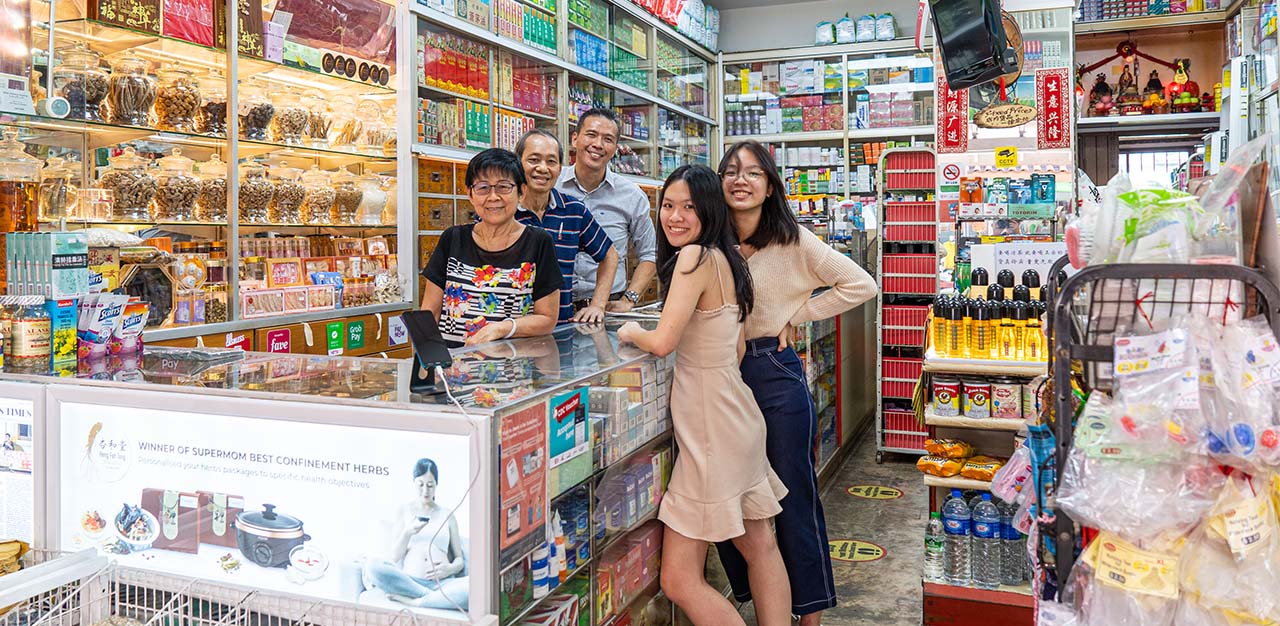
Nestled within the crowded estate of Bukit Batok in the western part of Singapore, Heng Foh Tong Medical Hall takes on an unassuming shopfront, but its interior is brightly lit and adorned with modern tech gadgets. Sleek LED light panels that are void of dust and cobwebs illuminate the shop, while electric fans with no blades oscillate above to ventilate the space.
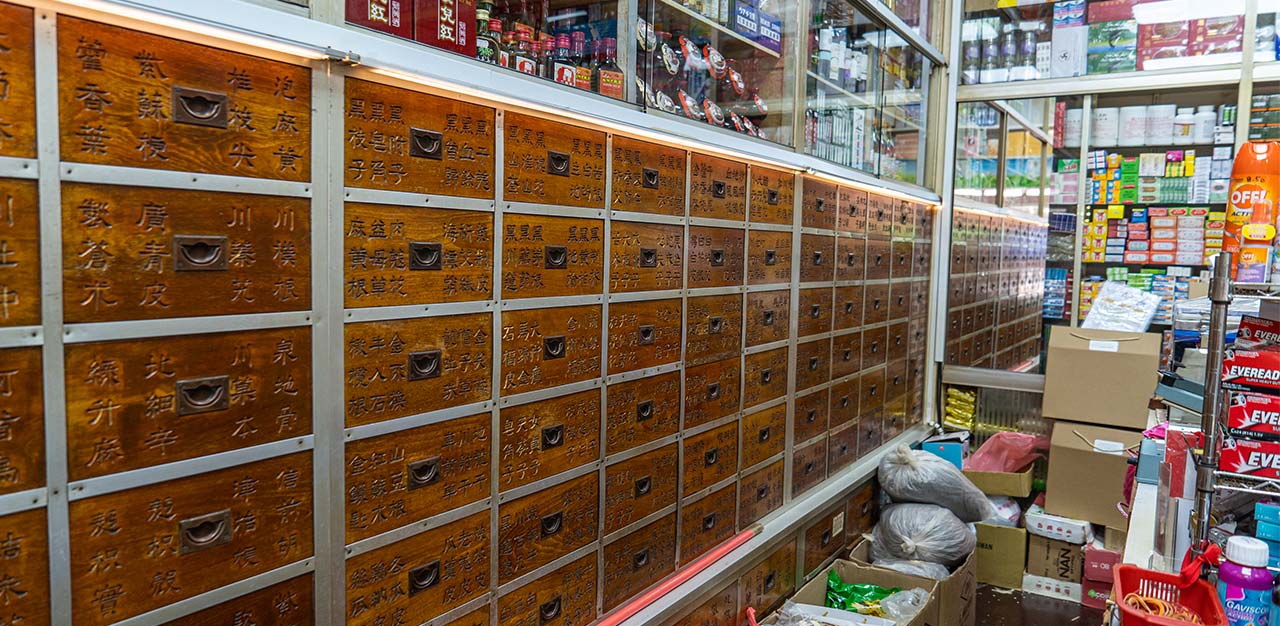
One half of the store resembles a provision shop, where shelves are filled with daily essentials, such as body soap, baby pacifiers encased in plastic wrappings and cans of breakfast cereal, while the other half a traditional Chinese medical hall, where herbs are either stored in glass jars or loosely kept in their own compartments in an expansive wooden herb cabinet.
“This (wooden shelf) has been around since my grandmother’s time and it was handcrafted by Shanghainese craftsmen in 1957 to conserve and maximise the space to house over 600 herbs,” Mr Lee says, gesturing towards the well-maintained family heirloom behind the counter.
New blood, new solutions
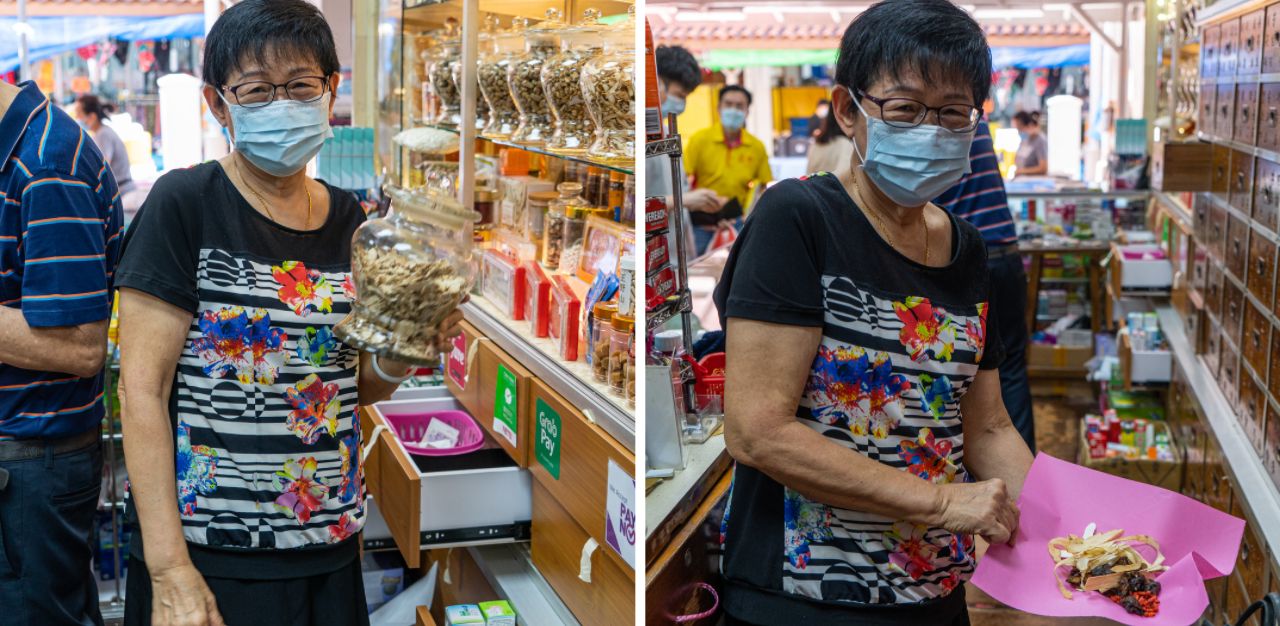
Mr Lee, who only took over the reins of marketing and commerce strategy at Heng Foh Tong Medical Hall in 2019, reveals that part of his rebranding efforts include upgrading the amenities within the store. Besides the new LED light panels and bladeless fans, he intends to replace the medical hall’s rusty display racks with ergonomic ones for his elderly parents. He has also come up with an enterprising business strategy that targets mothers, who have recently given birth. It is a bespoke confinement package comprising a melange of nutritious herbs that are handpicked by Mr Lee’s mother, Mdm Chye Nyuk Lian.
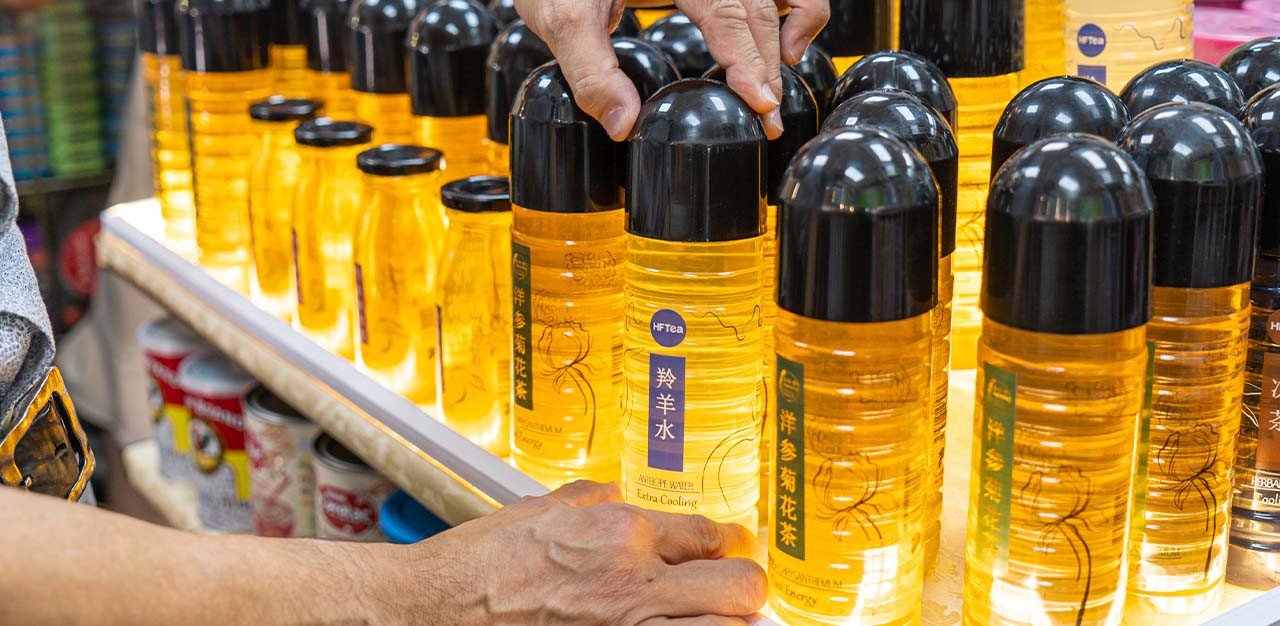
Being forward-looking
When Covid-19 hit, many firms were forced to undergo rapid digitalisation and distribute their services to a growing group of online consumers. Fortunately for all three brands, having the prescience to create a digital domain ahead of the pandemic helped the businesses pivot well during the lockdown.
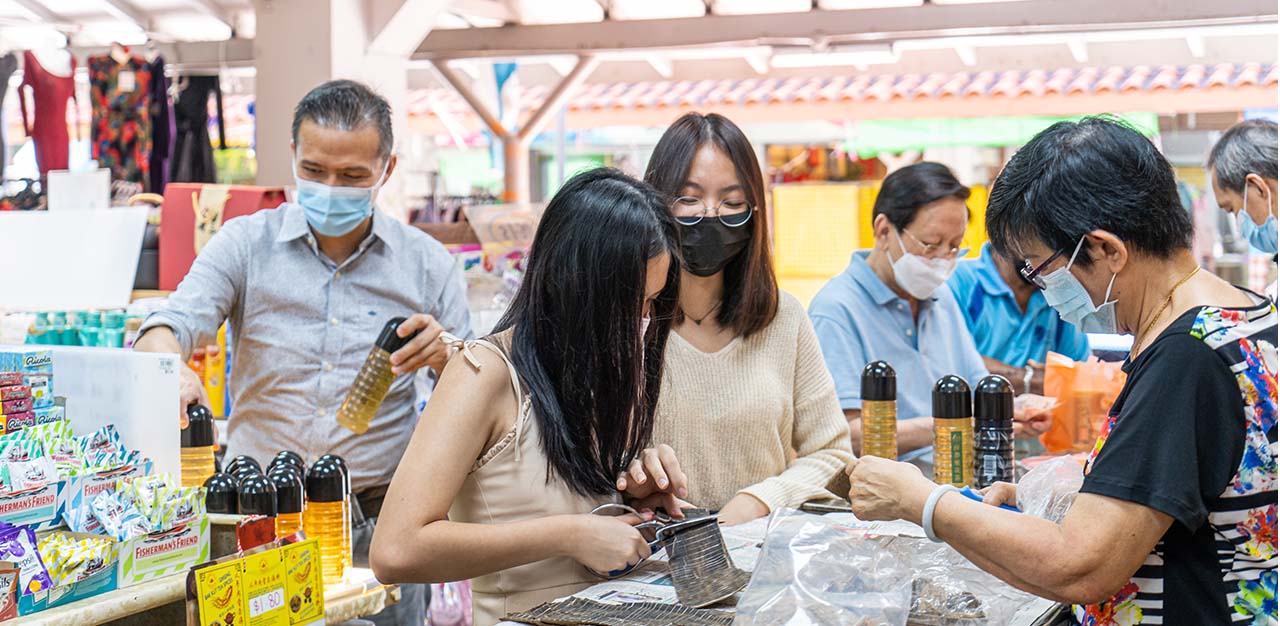
Where other businesses would scramble to scour for vendors and set up a landing or social media page, Anthony The Spice Maker, Cheong Ann Watch Maker and Heng Foh Tong Medical Hall had already created an impressive social media or digital presence. Anthony The Spicemaker boasts a modern-looking web page with a strong brand identity, and Cheong Ann Watch Maker was featured multiple times on digital publications, while Heng Foh Tong Medical Hall took to the Shopee space to increase its sales funnels.
“It has always been my father’s vision to go digital,” Ms Leow says. “He knew going online was the way into the future and nudged me to lead the copywriting and designing parts of things.”
“As we went online, social media was a natural progression that came down the pipeline. We have now engaged a digital marketing company Firstcom Solutions to help us scale our social media game,” Mr Lee says.
If anything, technology has been an enabler. And Ms Leow, who has since moved to Switzerland for love and has frequent calls with his father via Zoom, can attest to that.
“I am presently doing research on the European market, and my dad and I have been on Zoom calls to discuss possibilities of extending Anthony The Spice Maker here,” she says.
What the older generations say
Each family that runs its own business usually has its own set of cultures and rules to abide by. When new blood injects new ideas into an ecosystem that has been traditional and conservative for too long, resistance will surface and internal stakeholders will face familial pressures.
When Mr Lee voiced his interest in digitalising Heng Foh Tong, his parents were surprised. “To be honest, my husband and I are semi-retired. We never really had many expectations that our kids would run the medical hall. We never thought (our son) would be interested,” Mdm Chye says. “But we ultimately let him do what he thinks is best.” To which, Mr Lee reveals that his parents’ initial concern revolved around unnecessary spending but he continues to reassure them that he would only spend if there are “grants to ease the financial burden”.
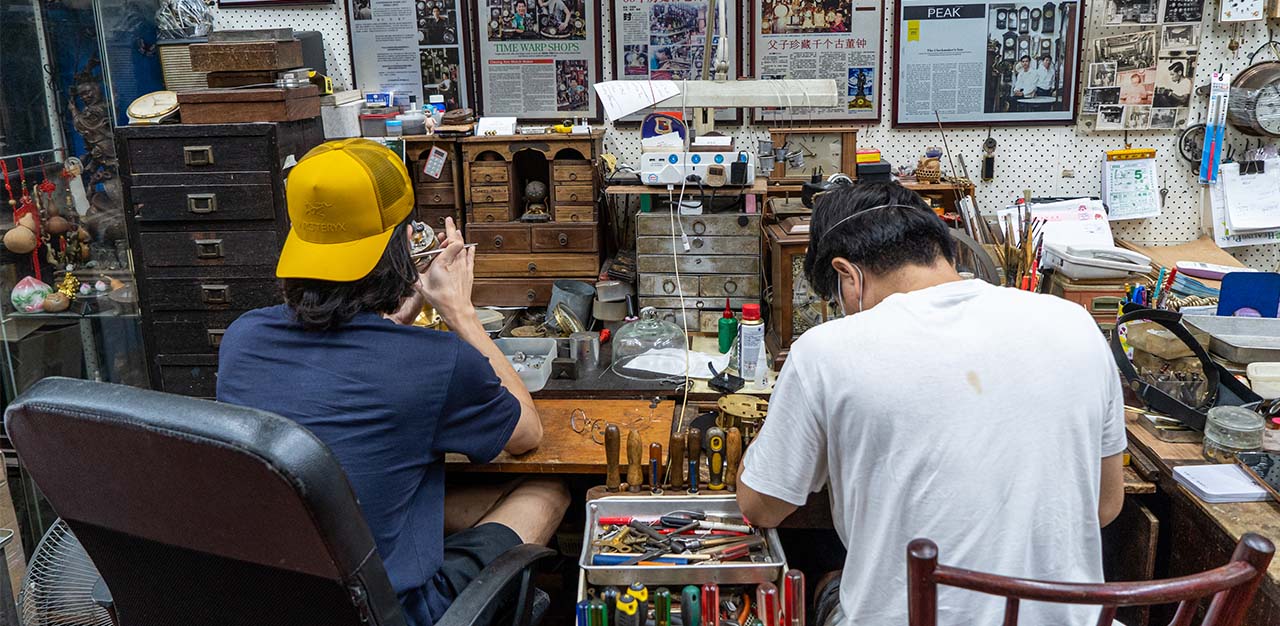
“I am always pushing Shawn to bring Cheong Ann Watch Maker to the next level. He is the face of the brand now. I will support him,” the older Mr Lim says. “But ironically, I would also always tell him: ‘Don’t get too popular’.”
In any case, how the present scions interact with their family members is reflective of the tight-knit chemistry they have with one another. Blurring the lines between an employee and an employer, the younger Mr Lim, Ms Leow and Mr Lee have had the opportunities to learn from the previous generations. As they continue to banter about in refreshing candour or qualitative criticisms with their parents and offsprings, they are remoulding the very DNA of the family brands to befit the tastes of the next generation of clients.
Join the conversations on TheHomeGround Asia’s Facebook and Instagram, and get the latest updates via Telegram.



